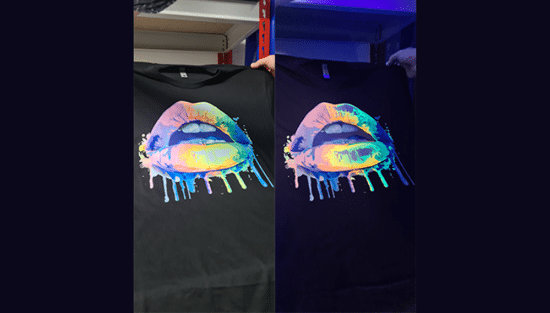The case for deinkability gets louder
Laurel Brunner, one of the driving forces behind the new ISO 21331, mentions in her Verdigris blog that this norm for the deinking of paper is increasingly being used.
We’ve recently been working a lot on ISO 21331, the international standard for assessing the potential deinkability of print.
This document is one of several standards under development within ISO to improve the environmental impact and accountability of graphics technology and print.
The idea behind ISO 21331 is really very simple. This short document is a tool to encourage media professionals to use resources efficiently and to plan their media investments taking environmental sustainability into account.
Media professionals can use ISO 21331 to help them decide which print media production method would be best for a particularly project, in terms of overall environmental impact.
They might for instance choose digital printing for very short run work such as photobooks, or for a few customised banners. And if the project is a long run glossy magazine, print buyers might opt for web offset or gravure using an ISO standard to inform their decision.
There are endless examples of how ISO 21331 might be implemented alongside other project planning tools. Overall this should lead to more sustainable communications and improved data for quantifying print’s environmental impact.
ISO 21331 is just one part of a much larger environmental impact conversation necessary to help media professionals with investment choices. But it is also important for developers of printing systems, including new imaging and marking techniques, inks and substrates.
The range of use cases for ISO 21331 is also growing beyond its original concept. ISO 21331 was conceived as an aid to print buyers, so that they could make informed decisions about their media investments.
But environmental impact and a medium’s recyclability potential are factors that increasingly concern marketing professional, particularly for high profile brands who need to demonstrate conformance with their own Corporate Social Responsibility policies.
We recently came across another interesting use case. An NGO in the US is providing documents and support to encourage printers and packaging engineers towards sustainable design.
GreenBlue’s mission is “to foster the creation of a resilient system of commerce based on the principles of sustainable materials management” and print guidance is obviously part of that. ISO 21331 is a tool for assessing the likely performance of processes and materials.
All around the world people are starting to think more carefully about how they invest in media. They are considering recyclability, energy footprints, transportation and waste. Sustainable design is an important part of the puzzle, and it is something everyone can keep in mind.
ISO 21331 is a small part of the same puzzle, intended to provide media professionals with a helpful tool for planning investment. It is also useful for printers considering investment in new production capacity and for manufacturers working on new materials and printing systems.
Source: This article was produced by the Verdigris project, an industry initiative intended to raise awareness of print’s positive environmental impact. This commentary helps printing companies keep up to date with environmental standards, and how environmentally friendly business management can help improve their bottom lines. Verdigris is supported by the following companies: Agfa Graphics, Spindrift.click, EFI, FESPA, HP, Kodak, Kornit Digital, Ricoh, Splash PR, Unity Publishing and Xeikon.
Topics
Interested in joining our community?
Enquire today about joining your local FESPA Association or FESPA Direct
Recent news

Streamlining personalisation with tech: Insights from the SmartHub Conference 2025 speakers
Personalisation Experience 2025 (6 – 9 May 2025, Messe Berlin, Germany) is running its inaugural SmartHub Conference from 6 – 8 May 2025.

Special Effects in DTF: How Neon Inks Are Making Apparel Pop
Neon fluorescent inks are the latest innovation in DTF printing, offering vibrant, eye-catching effects under both daylight and UV light, giving apparel decorators a competitive edge. Testing shows good wash durability, though market perception of added value is still developing. With increasing adoption and ongoing technological advancements, neon represents a significant upgrade for creative customisation.

Unlocking Growth Opportunities in the Printed Personalised Apparel Industry
The printed personalised apparel industry is booming, projected to reach $10.1 billion by 2030. Driven by consumer desire for self-expression and branding needs, technological advancements like DTG/DTF and e-commerce integration are key. Sustainability, eco-friendly materials, and on-demand printing are crucial growth drivers. Businesses leveraging these trends, including AI and social media, have significant commercial potential.

How to grow your business with white ink applications
Opaque white ink is revolutionising signage, vehicle graphics, wallcoverings, short-run and wood packaging, and window blinds by enhancing vibrancy and clarity. This enables printers to offer high-demand, standout products, boosting profit margins. HP Latex white ink applications and their large format printing solutions will be showcased at FESPA 2025 in Berlin.